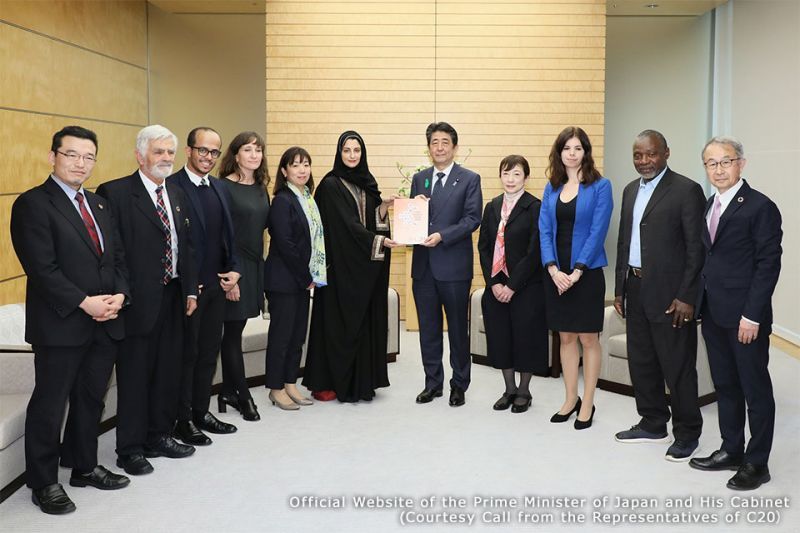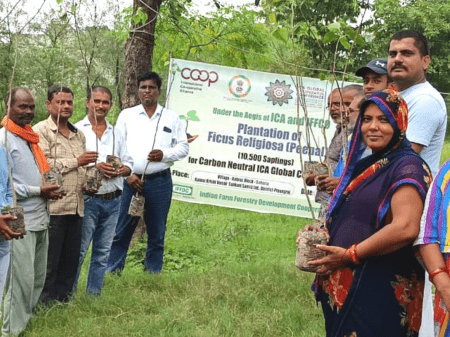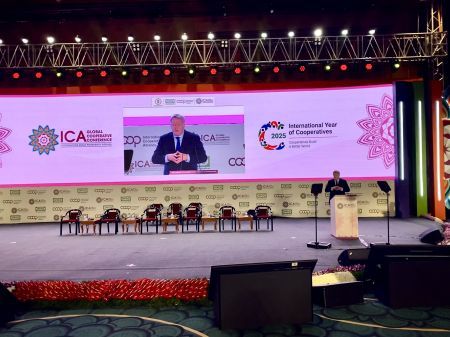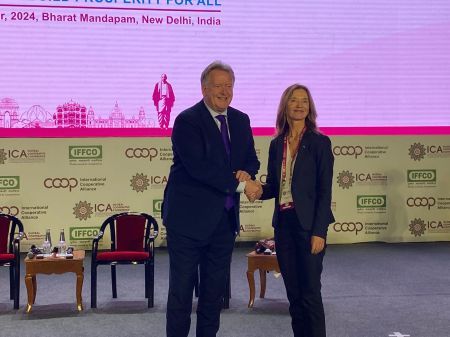
The Civil 20 (C20) is one of the seven Engagement Groups of the G20. It is a space through which civil society organizations from different parts of the world contribute in a structured and sustained manner to the G20, thus ensuring that world leaders listen not only to the voices representing the government and business sectors, but also to the proposals and demands of civil society as a whole. The C20 Summit took place from April 21-23 in Tokyo, Japan.
On April 18, representatives from the C20 met with Mr. Shinzo Abe, Prime Minister of Japan, and handed him the C20 Japan policy pack. Mr. Shinzo Abe is expected to include the policy pack during the discussions to be held at the G20 Summit in Osaka, Japan in June.
The C20 Japan policy pack cautions that the global order needs to take a hard look at the progress made and the gaps that remain in the run up to the achievement of the SDGs in 2030. The G20, also known as the 'flagship forum for sustainable economic development', has been exhorted to undertake 'an active role to accomplish the SDGs'. This also entails adequate financial support to developing countries for the 2030 Agenda. The Tokyo Declaration on Peace, Human Rights and Democratic Governance: Towards Improvement of Civic Space for the SDG 16+ was adopted at the Tokyo Democracy Forum as part of the C20 Summit.
The Policy Pack has a number of policy papers on strategic issues which present the commitment of the G20 countries towards the issue, the challenges posed in dealing with the same, and finally the recommendations on how the G20 countries can overcome the challenges to solve the problems.
Cooperatives have found mention in the C20 policy pack. Platform cooperatives are mentioned in the recommendation G of the Tokyo Declaration. The recommendation states that G20 countries should engage with multiple stakeholders to “design transitional policy in this context, which includes re-training workers, upgrading educational curricula, promoting the increased participation of women and girls in STEAM (Science, Technology, Engineering, Art and Mathematics) courses and professions, and supporting new forms of digital ownership (such as platform cooperatives, which provide a safe, accountable space for users and workers to provide and use data to collectively share the benefits of digitalisation)'.
In the International Financial Architecture policy paper, the recommendations for Financial Regulation and Financial Inclusion contain a directive for G20 countries to agree on “standards that promote a more diverse banking system in all countries”. This should include "state-owned and development banks at the regional and local levels, as well as cooperatives, savings and ethical banks and non-profit institutions." The aim is for the banking system to address "gender barriers and gaps in women's financial inclusion, and ensure finance to rural economy, small and medium enterprises, non-formal sector and poor and marginalised people at large."
The policy paper on Labour, Business and Human Rights provides recommendations on policies to support decent employment. One of the recommendation states the "Adoption by G20 members of systems of protection of youth employment in all its organizational forms (employment, self-employment, cooperative movementsetc.) within the framework of workers' rights and social security as guarantors of inclusion to the G 20 goal of reducing the percentage of young people who are most at risk of being permanently left behind in the labour market by 15% by 2025 in G20 countries.
The entire policy pack can be read by clicking here.




